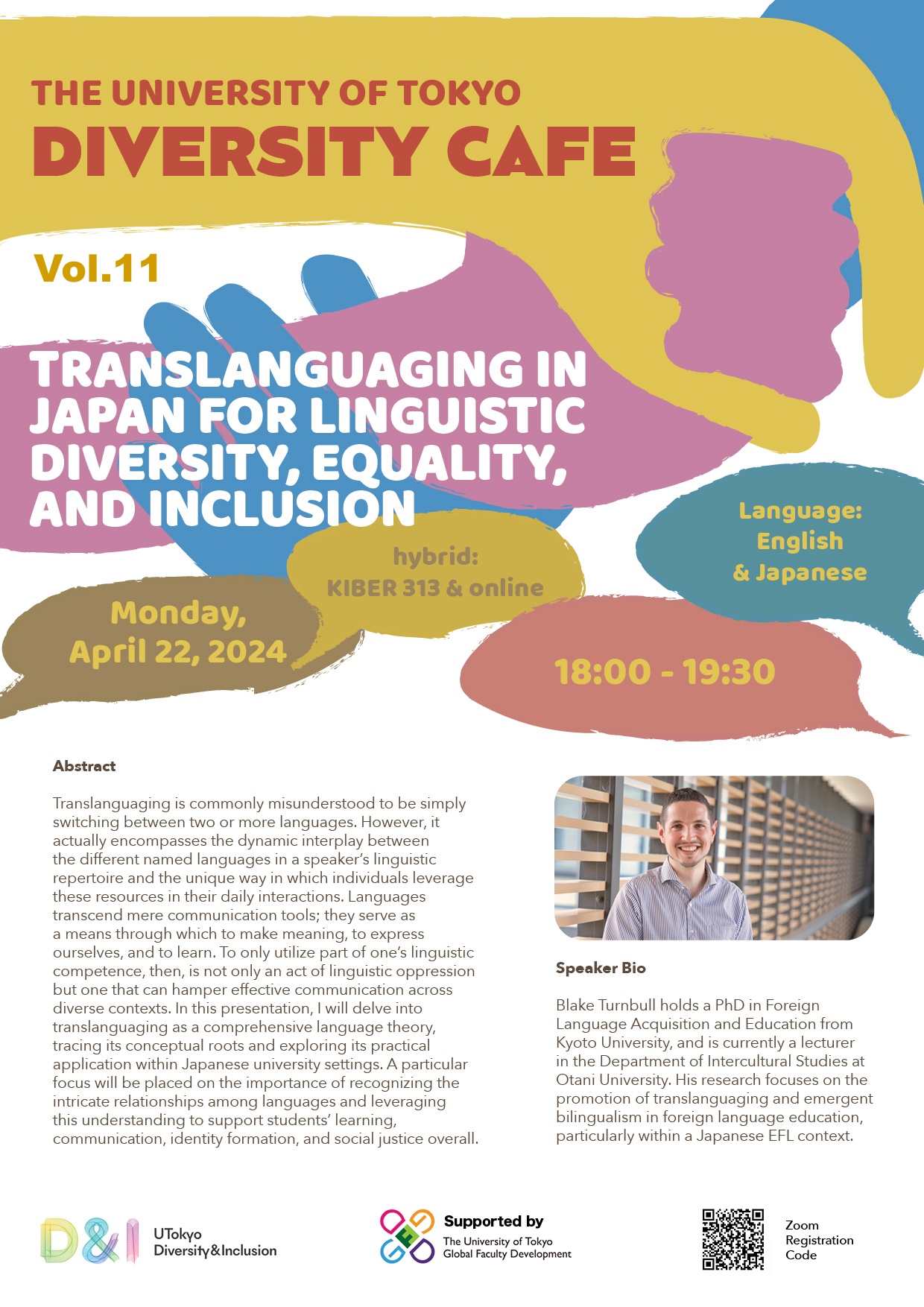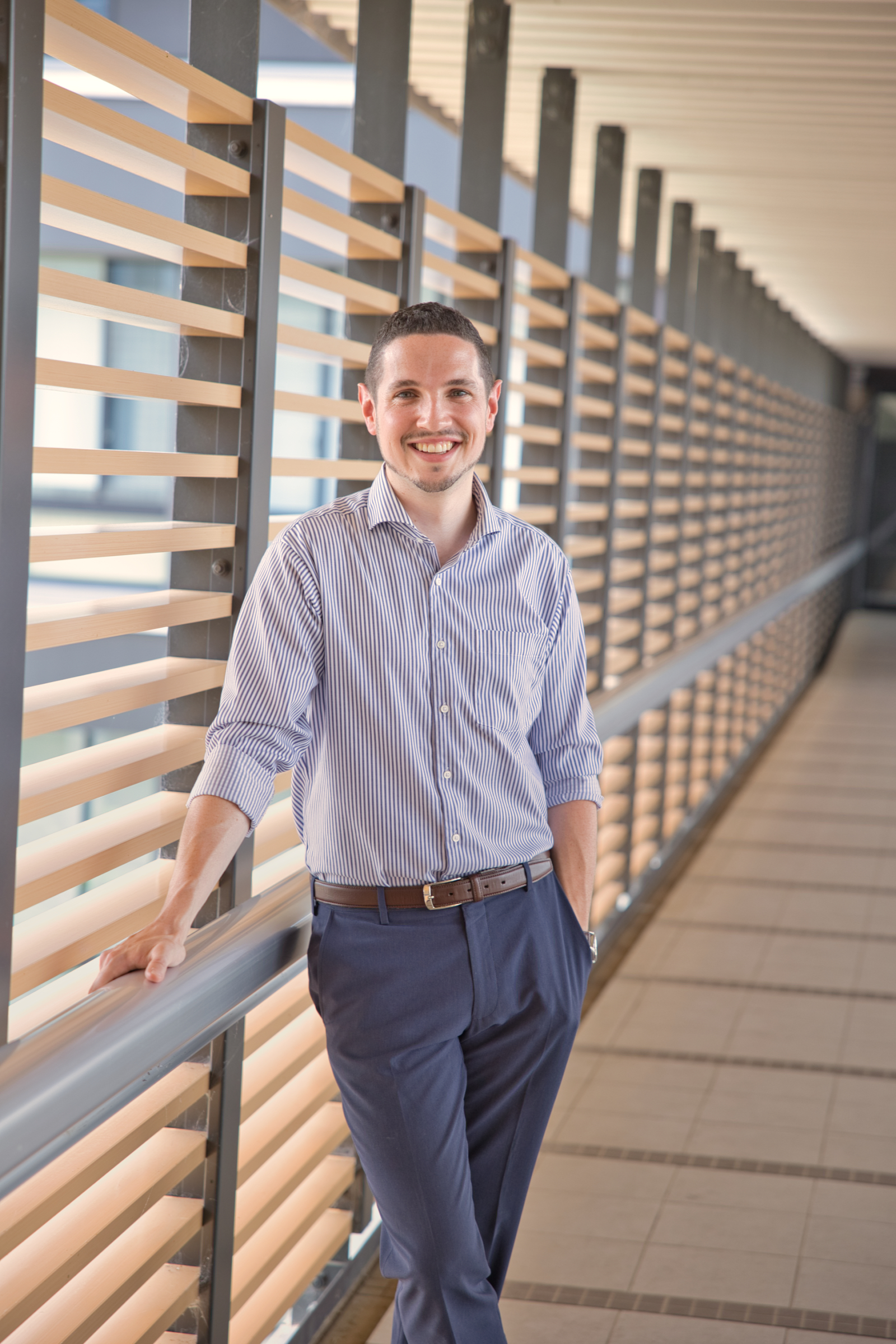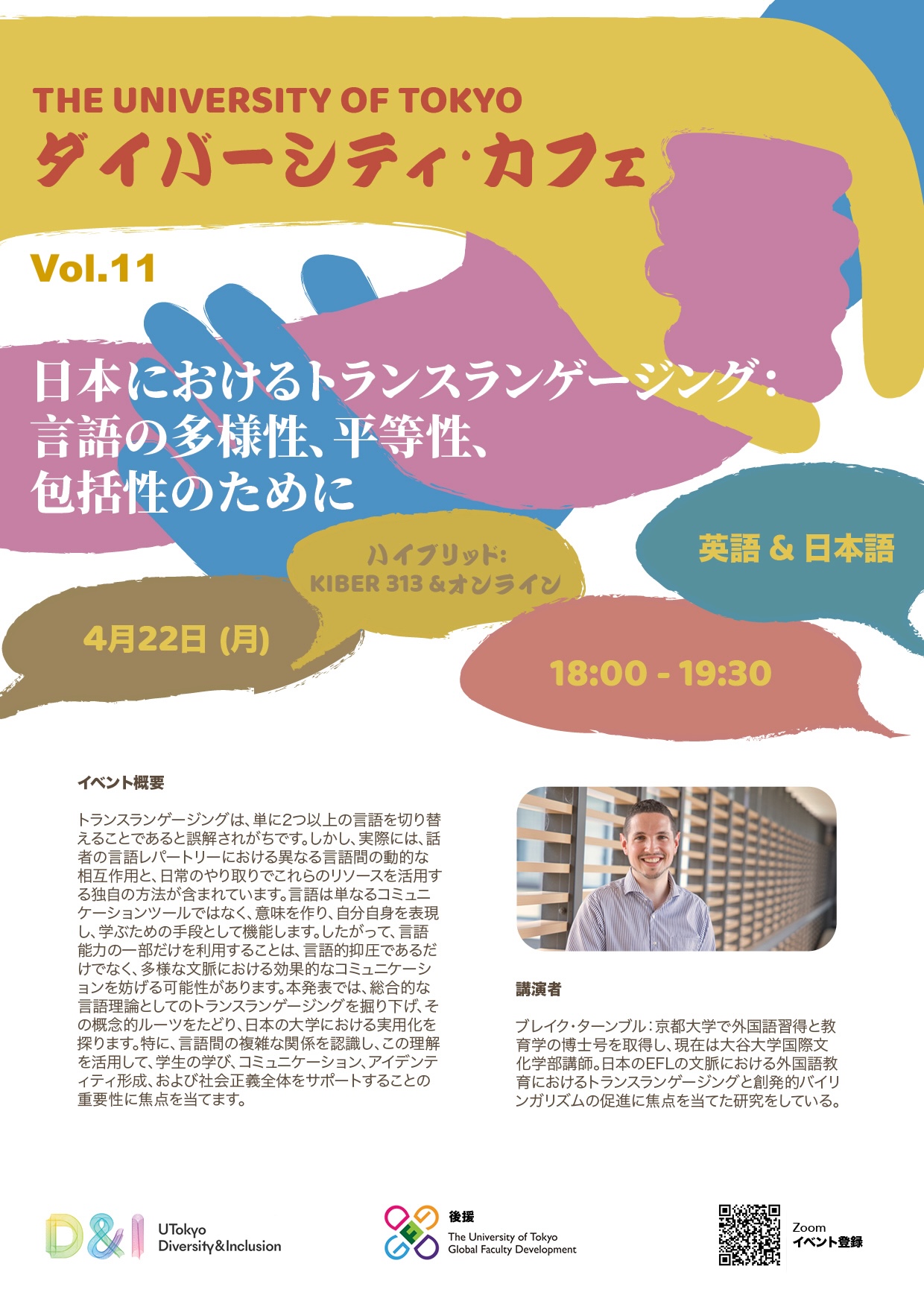
- Diversity Cafe
4.22 Diversity Cafe Vol. 11: Translanguaging in Japan for Linguistic Diversity, Equality, and Inclusion ダイバーシティ・カフェ Vol. 11: 日本におけるトランスランゲージング:言語の多様性、平等性、包括性のために
Event Details
Date/Time: Monday, April 22, 18:00-19:30
Hybrid: KIBER 313 (in person) or Zoom (online)
Speaker: Blake Turnbull
Language: English and Japanese(英語と日本語)
Speaker Bio

Blake Turnbull ブレイク・ターンブル
Blake Turnbull holds a PhD in Foreign Language Acquisition and Education from Kyoto University, and is currently a lecturer in the Department of Intercultural Studies at Otani University. His research focuses on the promotion of translanguaging and emergent bilingualism in foreign language education, particularly within a Japanese EFL context.
ブレイク・ターンブル:京都大学で外国語習得と教育学の博士号を取得し、現在は大谷大学国際文化学部講師。日本のEFLの文脈における外国語教育におけるトランスランゲージングと創発的バイリンガリズムの促進に焦点を当てた研究をしている。
Learn moreAbstract
Translanguaging is commonly misunderstood to be simply switching between two or more languages. However, it actually encompasses the dynamic interplay between the different named languages in a speaker’s linguistic repertoire and the unique way in which individuals leverage these resources in their daily interactions. Languages transcend mere communication tools; they serve as a means through which to make meaning, to express ourselves, and to learn. To only utilize part of one’s linguistic competence, then, is not only an act of linguistic oppression but one that can hamper effective communication across diverse contexts. In this presentation, I will delve into translanguaging as a comprehensive language theory, tracing its conceptual roots and exploring its practical application within Japanese university settings. A particular focus will be placed on the importance of recognizing the intricate relationships among languages and leveraging this understanding to support students’ learning, communication, identity formation, and social justice overall.
トランスランゲージングは、単に2つ以上の言語を切り替えることであると誤解されがちです。しかし、実際には、話者の言語レパートリーにおける異なる言語間の動的な相互作用と、日常のやり取りでこれらのリソースを活用する独自の方法が含まれています。言語は単なるコミュニケーションツールではなく、意味を作り、自分自身を表現し、学ぶための手段として機能します。したがって、言語能力の一部だけを利用することは、言語的抑圧であるだけでなく、多様な文脈における効果的なコミュニケーションを妨げる可能性があります。本発表では、総合的な言語理論としてのトランスランゲージングを掘り下げ、その概念的ルーツをたどり、日本の大学における実用化を探ります。特に、言語間の複雑な関係を認識し、この理解を活用して、学生の学び、コミュニケーション、アイデンティティ形成、および社会正義全体をサポートすることの重要性に焦点を当てます。
Contact
gfd-tokyo@adm.c.u-tokyo.ac.jp



